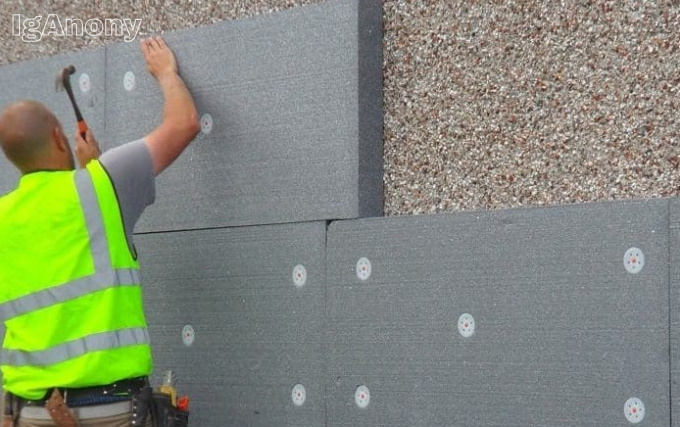The advent of technology in the realm of construction has brought forth innovative solutions that have transformed the industry. Among these advancements, the implementation of insulated EPS wall panels has emerged as a game-changer for modern construction. Not only do these wall panels offer exceptional thermal efficiency, but they also provide architects and builders with unparalleled flexibility and convenience.
Understanding Insulated EPS Wall Panels
Insulated EPS (Expanded Polystyrene) wall panels are a form of advanced construction material that have revolutionised building insulation. These lightweight panels have a core composed of EPS insulated foam and are typically sandwiched between two structural boards. The result is a sturdy, insulating wall system that has superior energy-saving properties, making it a prime choice for environmentally conscious construction.
The Benefits of Using Insulated EPS Wall Panels
Employing insulated EPS wall panels in construction offers a myriad of benefits. Firstly, they are incredibly energy-efficient, providing superior thermal insulation that reduces heating and cooling costs. Additionally, their lightweight nature simplifies handling and expedites construction processes, leading to faster project completions and reduced labour costs.
Secondly, these panels are known for their structural integrity. They are resilient and durable, capable of withstanding severe weather conditions without compromising their insulating properties. Furthermore, EPS wall panels are resistant to mould, mildew, and pests, promoting a healthier living environment.
Thirdly, insulated EPS wall panels are versatile and can be customised to meet specific architectural needs. Available in different sizes and finishes, they cater to a plethora of design preferences, enabling creativity and innovation in building designs. Undoubtedly, they are a testament to modern construction’s adaptability and responsiveness to the evolving demands of today’s society.
Installation and Applications
The installation process of insulated EPS wall panels is straightforward, requiring minimal specialised tools or equipment. This ensures that projects can progress quickly with reduced risk of installation errors. Furthermore, the panels can be easily cut and shaped on-site, enhancing their suitability for a diverse range of applications, from residential to commercial buildings.
As a crucial component of the building envelope, EPS wall panels contribute significantly to the overall energy performance of structures. In both new builds and retrofits, these panels are utilised to enhance insulation, thereby contributing to decreased carbon footprints and fulfilling sustainability targets within the construction industry.
Considerations and Best Practices
While insulated EPS wall panels bring numerous advantages, it is paramount for builders and contractors to engage with reliable construction material providers. Bighands Building Supplies is a reputable source, ensuring that the high-quality panels delivered meet industry standards and are suitable for a range of construction needs.
Moreover, it is essential to follow best practices when working with EPS panels, including proper storage on-site and adherence to manufacturer guidelines during installation. This will ensure the longevity and performance of the insulated wall system, ultimately contributing to the success of construction projects.
Complementary Building Materials
For best performance, it is advisable to complement insulated EPS wall systems with other quality construction materials. For instance, when looking at outdoor spaces, high-quality decking materials from trusted decking suppliers can enhance the aesthetics and longevity of residential and commercial exteriors. Similarly, the right choice of roofing, windows, and doors can all contribute to an optimised building envelope.
Strategic partnerships with suppliers like Bighands Building Supplies can provide builders with access to a comprehensive range of materials, encouraging cohesive and sustainable construction practices.
Why Choose Insulated EPS Wall Panels?
Choosing insulated EPS wall panels is an investment in efficiency and sustainability. The panels’ quick installation and low maintenance needs make them a cost-effective solution, while their environmental benefits align with green building certifications and standards.
Additionally, considering the increased emphasis on energy conservation and sustainable building practices, implementing innovative materials such as EPS wall panels positions construction firms as leaders in the push towards a greener future.
Insulated EPS Wall Panels in Modern Construction
Modern construction necessitates materials that meet the dual mandates of performance and sustainability. Insulated EPS wall panels are indicative of this trend, affording the possibility of designing structures that are not only energy-efficient but also secure and aesthetically pleasing.
Their integration into traditional and contemporary architecture showcases their adaptability and their role in driving the construction industry towards a more energy-conscious and efficient future.
In conclusion, insulated EPS wall panels signify a substantial leap forward in construction technology. As the industry continues to evolve, the importance of embracing such advancements will become increasingly imperative in delivering buildings that meet the economic, environmental, and social needs of our times.
Therefore, for construction professionals looking to stay at the forefront of innovation and efficiency, embracing the use of insulated EPS wall systems is a strategic move that is likely to yield significant dividends in the long run.
As we look towards the future of building and design, it is clear that materials like EPS wall panels will play a pivotal role in shaping the next generation of structurally sound, energy-efficient, and eco-friendly spaces.







